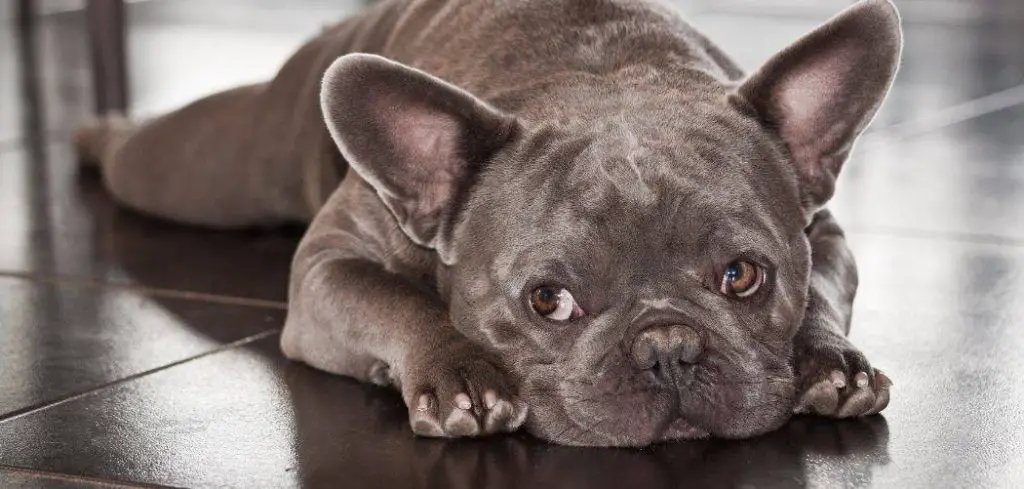Frequent sneezing in dogs can be worrying, especially when there are no other visible symptoms.
Sneezing is a reflex that helps clear irritants from a dog’s nose and throat, but persistent sneezing may signal underlying issues, even if your dog seems otherwise healthy.
We outline the common causes of sneezing in dogs with no other symptoms, what you can do at home, and when to seek veterinary help.
Dog Sneezing No Other Symptoms — Why It Happens
Dog sneezing with no other symptoms often happens due to mild, non-serious irritations in the nasal passages. Common triggers include dust, pollen, strong odors, or minor debris that tickles the nose.
Excitement or play can also cause dogs to sneeze as part of their body’s natural reflex to clear the airway. If the sneezing is occasional and your dog is otherwise acting normal, it’s usually harmless and self-resolving.
However, persistent sneezing or discharge may indicate an underlying issue that requires a veterinarian’s attention.

Dog Sneezing No Other Symptoms: Common Causes
Allergies
Allergies are one of the most common causes of sneezing in dogs. Environmental factors such as pollen, dust, mold, or household chemicals can irritate the nasal passages, leading to repeated sneezing.
Even without other symptoms like coughing or watery eyes, allergies can cause inflammation and discomfort.
Dogs with seasonal allergies may sneeze more during certain times of the year, and chronic exposure can sometimes lead to secondary infections if untreated.
Read more: Dog Sneezing and Coughing (What your dog’s body may be telling you)
Nasal Irritants
Dogs explore the world through their noses, which makes them prone to inhaling irritants.
Household dust, perfumes, cleaning agents, or strong odors can trigger sneezing episodes without other signs of illness.
While usually temporary, repeated exposure can make the nasal passages more sensitive over time.
Monitoring your dog’s environment and limiting contact with irritants can help reduce sneezing frequency.
Foreign Objects in the Nose
A small foreign object, like a grass seed, dirt, or a tiny stick, can lodge in a dog’s nasal passage and trigger sneezing.
Sometimes these objects cause no other symptoms initially, but persistent sneezing is the body’s way of attempting to expel the irritant.
Dogs may paw at their nose or show mild irritation, but in some cases, the only sign is repeated sneezing. If the object remains lodged, it can lead to infection or nosebleeds.
Upper Respiratory Infections
Mild upper respiratory infections can cause sneezing without other obvious signs. Viruses or bacteria can irritate the nasal lining, producing occasional blood-tinged or clear discharge.
In some dogs, sneezing may be the only symptom for several days before other signs like coughing or lethargy develop.
Even when sneezing is the sole indicator, infections should be monitored, especially in puppies or immunocompromised dogs.
Nasal Tumors or Polyps
Although less common, nasal tumors or polyps can lead to sneezing in dogs with no other symptoms.
These growths may irritate the nasal passages and cause mild bleeding or discharge that is not always noticeable.
Older dogs are more likely to develop nasal tumors. Early detection is important because untreated growths can obstruct airways and complicate breathing over time.
Environmental Dryness
Dry air can irritate a dog’s nasal passages, triggering sneezing as the nose tries to moisten itself. Homes with low humidity, especially during winter, can contribute to frequent sneezing episodes.
While generally harmless, chronic dryness can lead to nasal discomfort and make dogs more susceptible to infections. Using a humidifier and ensuring adequate hydration can help alleviate this issue.
What to Do If Your Dog Is Sneezing With No Other Symptoms
If your dog is sneezing but appears otherwise healthy, there are several steps you can take at home to help alleviate the issue.
First, monitor the frequency and pattern of sneezing to determine if it’s occasional or persistent. Keep your dog’s environment clean and free of potential irritants, including dust, smoke, and strong fragrances.
Regular grooming, particularly for long-haired dogs, helps reduce allergens that may settle in the nose and coat.
Encourage your dog to drink plenty of water to keep nasal passages hydrated, and consider using a humidifier in dry environments.
If you suspect a foreign object in the nose, avoid attempting to remove it yourself—improper removal can cause further injury. Instead, seek professional evaluation to safely address the issue.
When to Call or Visit Your Vet
Even if sneezing is the only symptom, veterinary consultation is recommended if the episodes are frequent, severe, or persistent.
Watch for signs of nosebleeds, pawing at the face, swelling, or foul-smelling discharge, as these may indicate a more serious underlying problem.
Puppies, senior dogs, or dogs with compromised immune systems should be assessed promptly because even mild infections can escalate quickly.
Your veterinarian may perform a thorough nasal examination, take X-rays or endoscopic images, and recommend tests to rule out infections, foreign objects, or growths.
Early identification of the cause ensures effective treatment and prevents complications. Don’t wait for additional symptoms—timely evaluation is key to maintaining your dog’s comfort and health.
Read more: Dog sneezing excessively (When to worry)
Key Takeaway
Sneezing in dogs, even without other symptoms, can stem from a variety of causes, including allergies, environmental irritants, foreign objects, mild infections, nasal tumors, or dry air.
While many cases are mild and manageable at home, persistent or severe sneezing warrants veterinary attention to rule out serious issues.
Observing your dog closely, maintaining a clean environment, and ensuring proper hydration are helpful at-home measures.
Most importantly, consult a veterinarian if sneezing continues or worsens, as early evaluation can prevent complications and provide your dog with comfort and relief. With attentive care, you can help your dog breathe easier and stay healthy.
